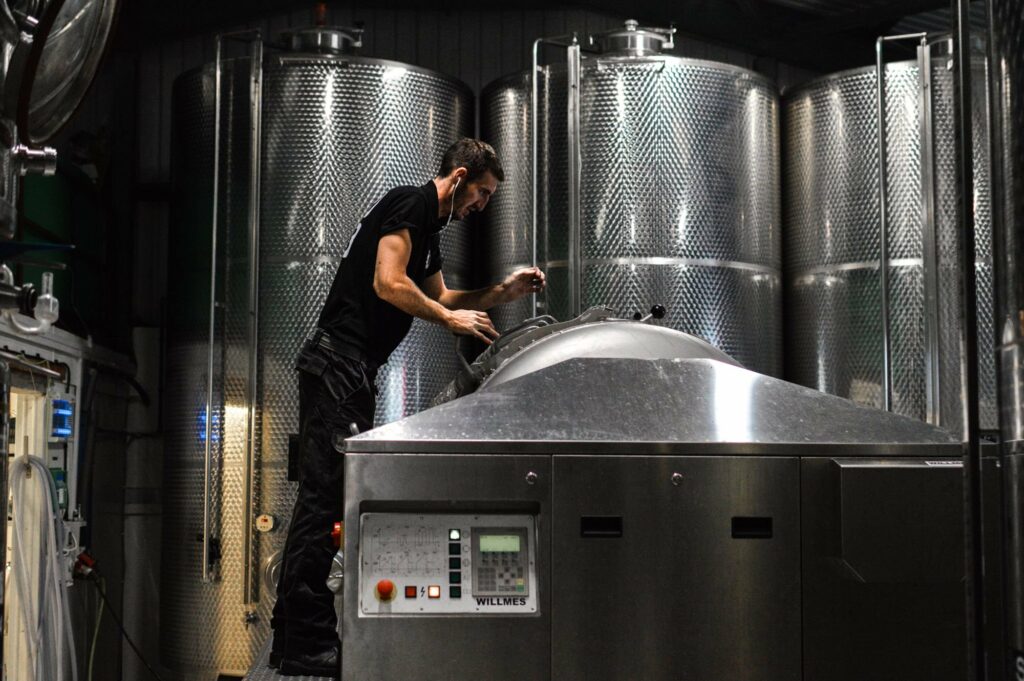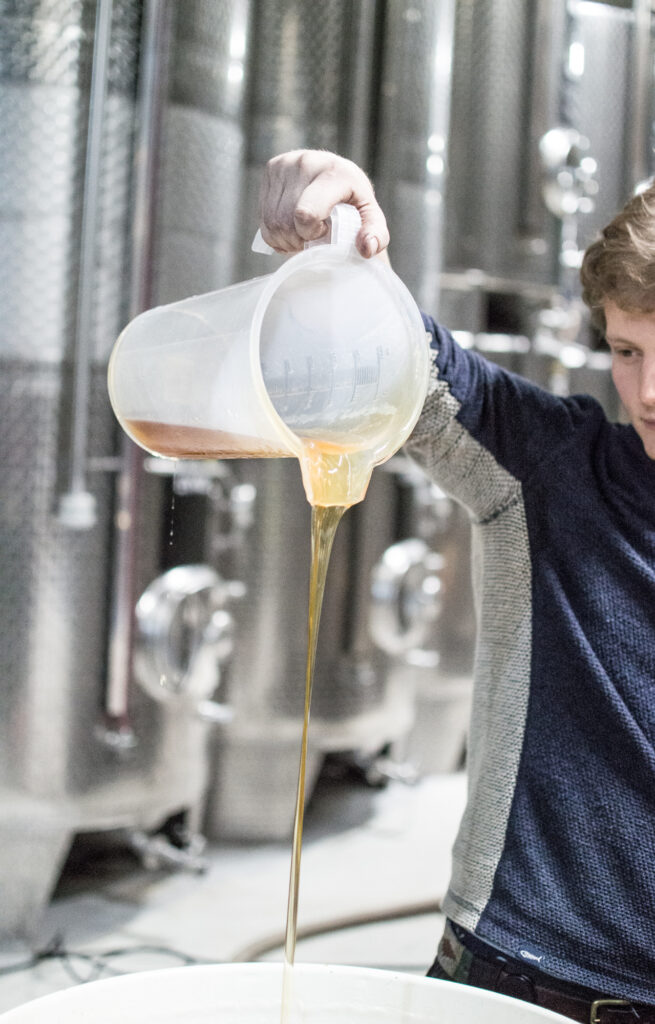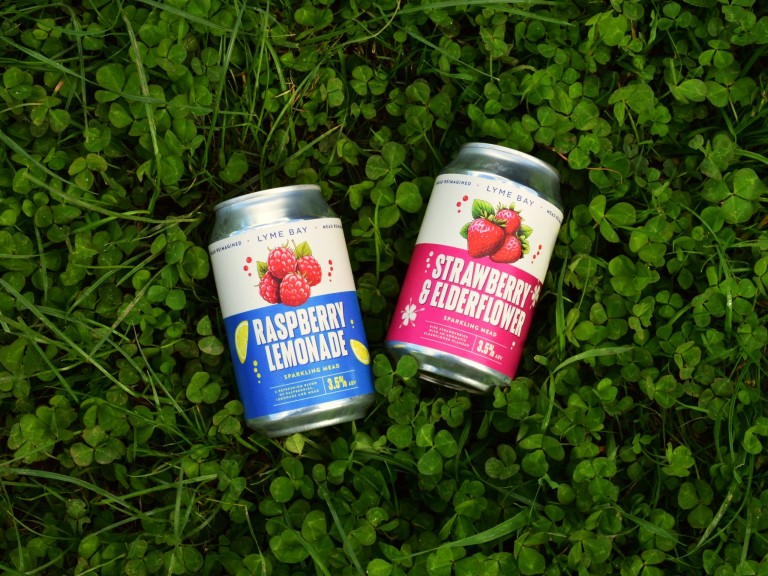If you think mead is just an old-fashioned drink made from honey, then we are here to tell you there is much more to this ancient libation than meets the eye.
With a sweetness that has enchanted discerning palates for centuries, mead is often referred to as the ‘nectar of the gods’ and boasts a rich history that spans cultures dating back thousands of years across the globe.
What is Mead Made From?
Simply put, the craft of mead creation lies in the fermentation of three key ingredients: honey, water, and yeast. Fermentation is a natural process where yeast acts as a catalyst, converting the sugars present in honey into alcohol and carbon dioxide – often giving the resulting drink a slight fizz.
However, as well as these mead ingredients, the art of mead-making requires striking a delicate balance between temperature, yeast strains, pH levels, and nutrient additions during fermentation, which plays a key role in shaping the final characteristics of the mead.
The Mead Fermentation Process
Yeast activity is at its peak within the optimal temperature range of 18°C to 24°C, leading to a more efficient fermentation process. In contrast, lower temperatures can result in sluggish fermentation, and temperatures that are too high can produce undesired characteristics and flavours. The type of yeast used in mead-making is also crucial, as different strains contribute different flavours and aromas to the final product. For example, ale yeast strains work well for traditional meads, while wine yeast strains are commonly used for fruit meads.
pH levels have a role to play in yeast activity, nutrient availability, and the overall stability of the mead. Maintaining an appropriate pH range (typically between 3.5 and 4.5) is essential for healthy fermentation and desired flavours.
And finally, yeast requires essential nutrients such as nitrogen, vitamins, and minerals for optimal growth and fermentation. Inadequate nutrient levels can result in stressed yeast, leading to off-flavours and incomplete fermentation. So, mead makers often add yeast nutrients such as diammonium phosphate (DAP) and yeast hulls to ensure a nutrient-rich environment, supporting healthy yeast metabolism throughout the fermentation.

Common Mead Fermentation Challenges
Fine-tuning these variables allows mead makers to achieve their desired flavour profile, sweetness level, and overall quality. However, like any alchemical process, this is not without its challenges. Issues like stuck fermentation and off-flavours can pose hurdles for mead makers.
Stuck fermentation refers to a situation in mead production where the fermentation process slows down or halts prematurely, leaving unfermented sugars in the mead. This can result in a mead that is sweeter than intended and lower in alcohol content.
Off-flavours in mead refer to undesirable taste or aroma characteristics that detract from the overall quality of the final product. Several factors can contribute to the development of off-flavours in mead, such as extremes of temperature, inadequate nutrients, or batch contamination by unwanted microorganisms.
Monitoring mead fermentation conditions and making timely adjustments are key to overcoming these challenges and ensuring a successful mead batch.
The Maturation of Mead
In answering the question, ‘How long does mead take to ferment?’ it depends if you are a home brewer or a master mead maker. If you’re making mead at home, you can bottle and enjoy it after just a month of fermentation. Craft mead makers, however, know that its flavours improve with longer ageing.
This is because the maturation process, also known as ageing, is a crucial phase in mead production that significantly influences the flavour and character of the final product. Ageing in various vessels such as barrels or bottles imparts different flavours and complexities alongside the various chemical and physical transformations that occur as mead matures.
During maturation, the different flavours derived from honey, fermentation by-products, and any additional ingredients used (such as fruits or spices) begin to integrate and meld together. In addition, certain compounds that may have contributed harsh or astringent notes during the earlier stages of fermentation undergo chemical changes, leading to a reduction in sharpness. Maturation also allows for the development of additional flavours and aromas as chemical reactions continue to occur. This is particularly true when mead is aged in different types of barrels or bottles – oak ageing, for example, may impart vanilla, tannins, or subtle woody notes. The clarity and stability are also improved during maturation as sediment and haze particles settle. Finally, the alcohol in the mead becomes better integrated with other components, contributing to a more balanced flavour profile.
As wise mead makers know, patience is a virtue, and the reward is a mead that reflects their efforts and craftsmanship.

Order from Our Mead Experts
Here at Lyme Bay Winery, we’ve been perfecting our mead for almost 20 years and have created an extensive range of mead flavours that are proving very popular – not to mention award-winning.
You can buy all our meads at our wonderful Winery shop, which is open Monday to Saturday from 9.30 am to 4.30 pm, and Sunday from 11 am until 3 pm. If you can’t get to us, you can also order mead online or get in touch with our friendly team here at Lyme Bay Winery at info@lbwdrinks.co.uk or on 01297 551355.
And don’t forget to follow Lyme Bay on Instagram and Facebook to share your own mead meanderings with us.



